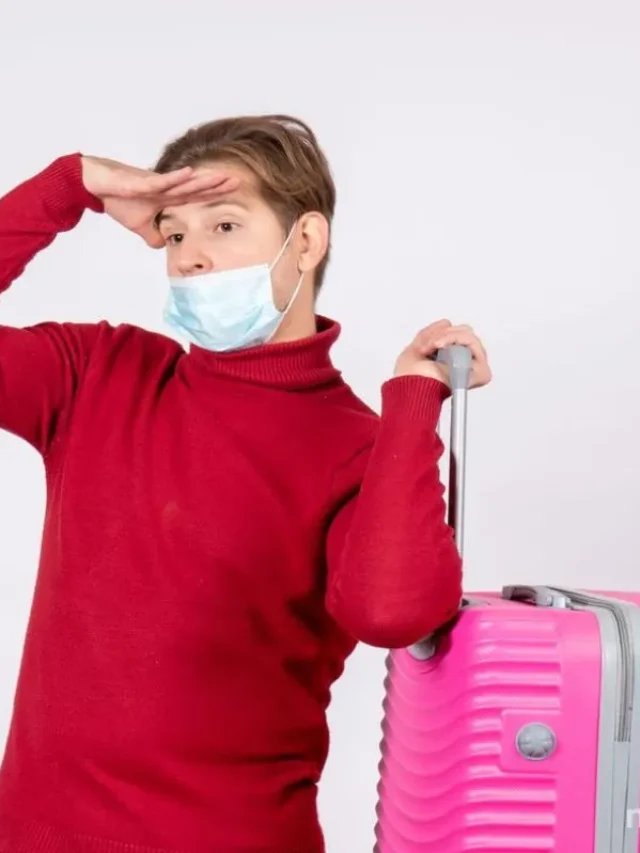You are planning an extensive trip and wondering if that new malaria vaccine is worth it. Exotic destinations pose health concerns, and malaria is no exception. Getting vaccinated can be tricky when organizing your to-dos. Which vaccine is better and when? Does it work? We’ll explain everything about malaria vaccine for travel before the procedure. The basics of malaria, vaccines, efficacy, and timing will be covered. Make the most of your vacation with healthy suggestions. Malaria makes you trade margaritas for hospital beds. Be ready to enjoy the journey!
Understanding Malaria Risk for Travelers
Travelers must know their malaria risk before visiting certain countries. Parasites conveyed by mosquitoes produce malaria, a deadly disease. Malaria is preventable with measures.
Know If You’re Going to Malaria-Affected Areas
Check if your destination has malaria first. Sub-Saharan Africa, Southeast Asia, South America, Haiti, and the Dominican Republic are high-risk. Season, location, and mosquito type affect risk in these areas. The CDC webpage maps global malaria risk.
If You Need Medication
Antimalarials are advised for high-risk trips. The malaria risk and your health determine the medicine. Some medications must be taken before, during, and after travel, while others only while. Consult your doctor about malaria vaccine for travel and appropriate antimalarial for your destination and medical history.
Protect Against Mosquitoes
Malaria is best prevented by avoiding mosquito bites and taking medicine.
Tips include:
-Using EPA-registered DEET, picaridin, oil of lemon eucalyptus, IR3535, or 2-undecanone insect repellent. Wear long sleeves and trousers at night and in the evening when mosquitoes are most active. Sleeping in air conditioning or with mosquito netting, screens, and bed nets. Eliminating standing water where mosquitoes grow.
Understanding the risk or malaria vaccine for travel, taking recommended antimalarial medication, and avoiding mosquito bites can help you travel to tropical countries confidently. For safe and healthy travel, visit a travel medicine specialist for the latest guidance.
Available Best Type Malaria Vaccine for Travel

RTS, S (Mosquirix)
RTS, S (Mosquirix) is the first malaria vaccine approved. It targets the worst malaria parasite, Plasmodium falciparum. In young infants, the vaccination provides limited malaria protection after four doses. The RTS, S vaccination may protect travelers from malaria, but they should also use insect repellents, bed nets, and antimalarial medications.
The PfSPZ vaccine
The PfSPZ vaccine contains live, weakened P. falciparum parasites that cannot cause malaria. PfSPZ vaccines can prevent malaria up to 100%, according to studies. PfSPZ vaccines are expensive and complicated to make, limiting their utilization. Though currently under clinical trial, it may be available to travelers.
ChAd63, MVA ME-TRAP
The ChAd63 MVA ME-TRAP vaccine induces an immune response by introducing malaria proteins via a viral vector. Clinical trials demonstrate this vaccine is safe and moderately efficient at lowering malaria infection rates. Like the PfSPZ vaccine, ChAd63 MVA ME-TRAP is developing but may soon be available to travelers with appropriate protective measures.
Though limited, the malaria vaccine for travel is improving. Visitors to malaria-endemic areas may have more protective alternatives in the future. However, insect repellent, bed nets, protective clothing, and antimalarial medications are still the best malaria prevention techniques.
Who Should Get the Malaria Vaccine Before Travel
If You’re Traveling to a Malaria-Endemic Area
The destination is essential in determining if you need a malaria vaccine for travel. Malaria is widespread in Africa, Asia, Eastern Europe, South America, Central America, and the Caribbean. When visiting sub-Saharan Africa or Southeast Asia, vaccination is advised. Rural or forest travel might be dangerous even for a short time.
If You Have a Weakened Immune System
HIV/AIDS, cancer therapy, organ transplants, and other immune-suppressing illnesses or drugs make you a good candidate for the malaria vaccine for travel. Malaria infections are tougher to fight. Thus, immunization protects you.
Traveling with Kids
Infants and small children are more likely to die from malaria. If you’re traveling to an endemic area with kids, vaccinate everyone. Children as young as 6 months can get the malaria vaccine.
An Outdoor-Intensive Itinerary
Vaccination is recommended for eco-tourism, adventurous travel, and research outside of cities. Spending more time outside or in jungles increases mosquito bites and malaria risk. Combining the vaccine with insect repellant, protective clothes, and bed nets can reduce risk.
What to Expect When Getting the Malaria Vaccine For Travel
Malaria vaccinations can help you travel safely, but they have adverse effects. The malaria vaccination requires three or four shots over several months. Good news: most side effects are modest, like injection site discomfort, headaches, and weariness.
Pain and swelling
The region may be painful, red, or swollen a few days after your shot. A cool compress can ease the pain. For soreness, over-the-counter painkillers work. Within a week, swelling and pain should subside.
Fatigue and Headaches
After vaccination, some patients report temporary headaches, muscle aches, and fatigue. Rest, water, and OTC painkillers can speed recovery. Try not to worry—these side effects are indicators that your body is fighting the disease.
Rare but Serious Reactions
Rarely vaccination components can cause serious allergic reactions. Breathing problems, throat swelling, disorientation, and weakness require emergency medical attention.
Some more considerations:
• The malaria vaccine does not provide 100% protection and uses mosquito nets and insect repellent.
• Malaria testing is necessary if symptoms occur during or after travel. The vaccination does not affect malaria diagnosis.
• A booster shot every few years may be recommended to maintain immunity. Consult your doctor for a booster schedule.
• Side effects may intensify after the initial dose. Subsequent shots reduce reactions.
Malaria vaccine side effects may be uncomfortable, but immunization is the greatest approach to preventing life-threatening disease. Relax, knowing that your reactions are evidence of building critical health and travel safety protection.
Conclusion
A malaria vaccine for travel may add to existing precautions if traveling to a malaria-risk location. Since these immunizations are new, educate yourself. Talk to your doctor or travel clinic about whether it’s right for you, what to do pre- and post-travel, when an antimalarial treatment regimen is advised, and the dangers and side effects. For some journeys, a vaccine is another option to protect your health, but it involves forethought. Safe travels!
Our Services include the best healthy eating habits, nutrition guides, diet, nutrition plans and newsdailytime.
Frequently Asked Questions
Is the malaria vaccine available?
Travelers can prevent malaria using the RTS, S vaccination. The WHO recommends insect repellent, bed nets, and antimalarial medications for travelers from non-endemic nations like the US. Children in portions of Africa should get the vaccine. RTS and S vaccines are not 100% effective. Thus, travelers should not rely on them.
How effective is the malaria vaccine?
Young toddlers have partial malaria protection from the RTS, S vaccination. Over four years, the vaccine avoided 4 in 10 malaria cases in clinical trials. RTS, S protection decreases over time; therefore, it may be less effective in malaria-endemic areas. Additional vaccine doses may be needed to maintain protection. With other malaria prevention measures, the vaccination may protect travelers from non-endemic countries, but it should not be depended on alone.
Do I need the malaria vaccine to travel?
Only newborns and children in sub-Saharan Africa with moderate to high malaria transmission should have the Malaria Vaccine in India. The CDC does not recommend RTS or S for most malaria-endemic travelers. Travelers ‘ main malaria prevention measures are mosquito avoidance, insecticide-treated nets, and chemoprophylaxis. When combined with these steps, the malaria vaccine can give some protection but should not replace them. Talk to your doctor about malaria prevention for your destination and length of trip for Malaria Vaccine For Travel.
Read More: What Are Non Clinical Treatments for ADHD


